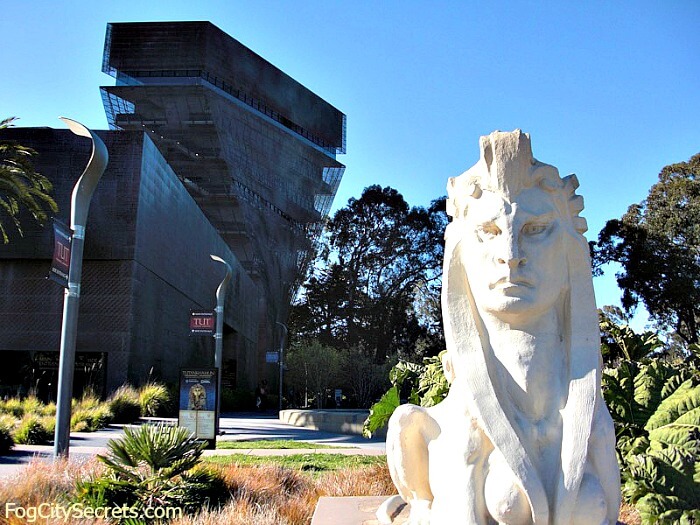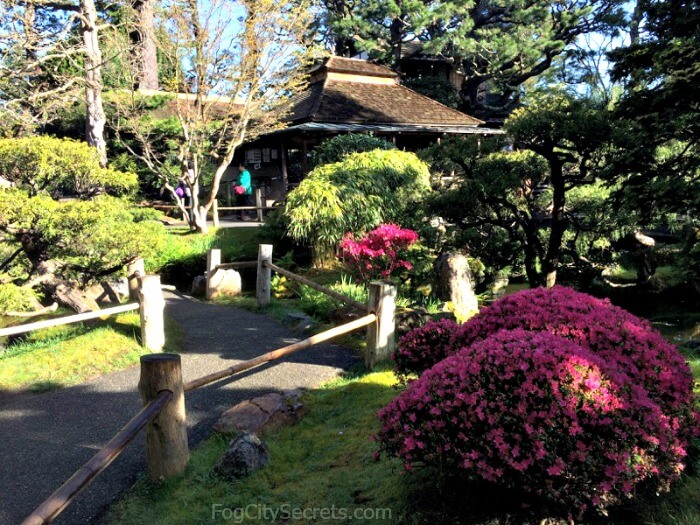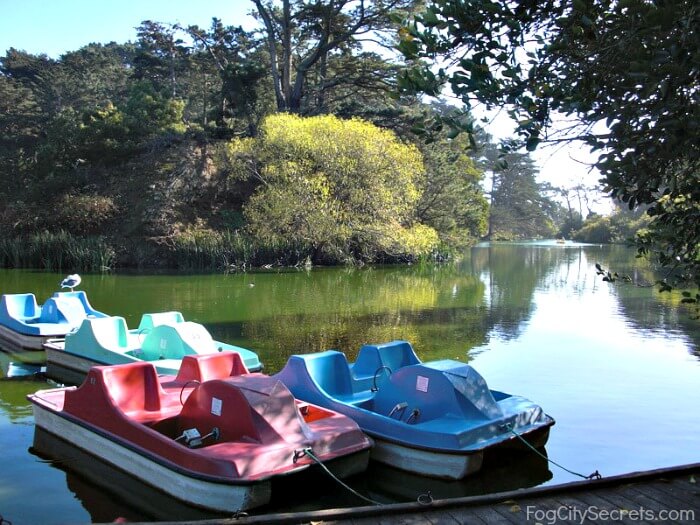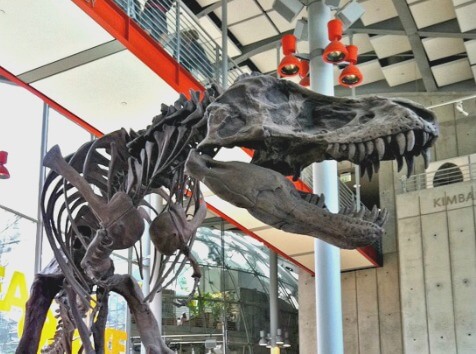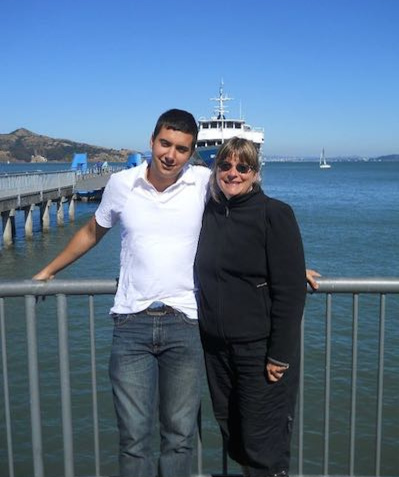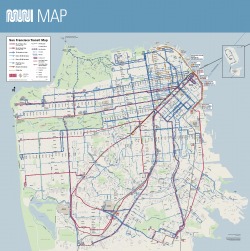- Home
- Golden Gate Park
- Botanical Garden
The Botanical Garden
of San Francisco
The Strybing Arboretum

The Botanical Garden in San Francisco is a wonderfully serene place to explore, located in the heart of Golden Gate Park.
The gardens, often referred to by locals as the Arboretum, focus on plants that are adapted to climates similar to San Francisco's: a quasi-Mediterranean climate with a heavy dash of cool fog.
There are 55 acres of greenery to explore, including around 8,000 species of plants from all over the world.
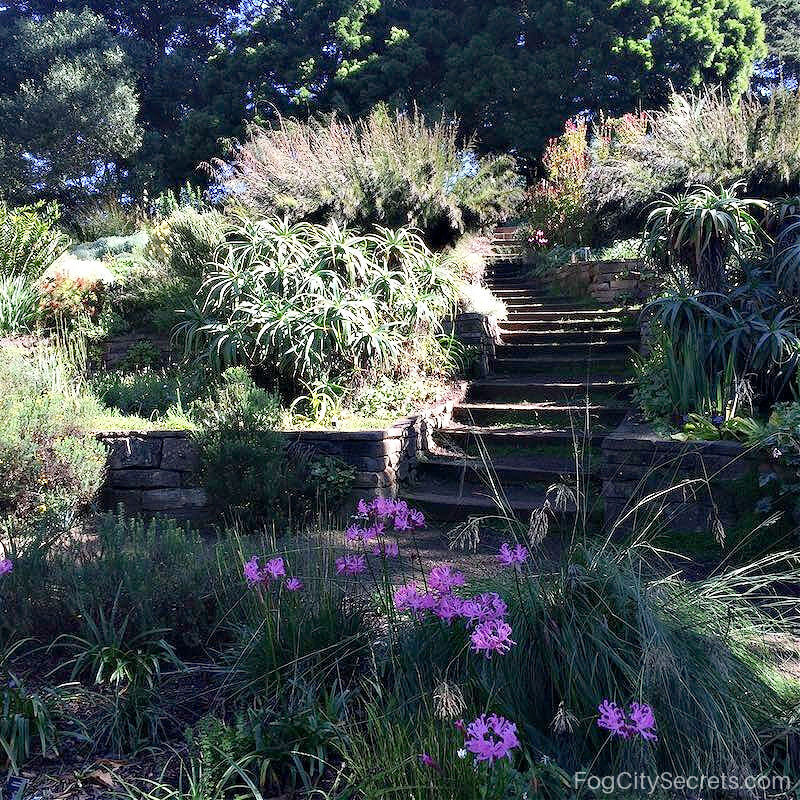
Ticket advice...
Generally speaking, there's not really any advantage to buying tickets in advance. In fact, they add on a $2.25 fee for booking online, so it's cheaper to buy tickets at the gate.
Reservations are suggested, though not required. There may be a line to get in on busier days (not so much on weekdays) and people with reservations go in first on weekends and holidays. SF residents and others with free admission can also get online reservations (and with no extra charge for booking online).
If you buy a ticket in advance, it is for a specific day, good all day. See tickets for reservations.
How to Explore the Gardens
There are two entrances to the garden: the Main Entrance and the North Entrance (see maps below).
At either entrance, you can pick up a map of the gardens and some brochures about the features.
Early entry (7:30-9:00 am) is at the Main Entrance only.
Get a map: Botanical Garden Map
Once you have your map, you can decide which of the areas you want to see, or just ramble around and be surprised.
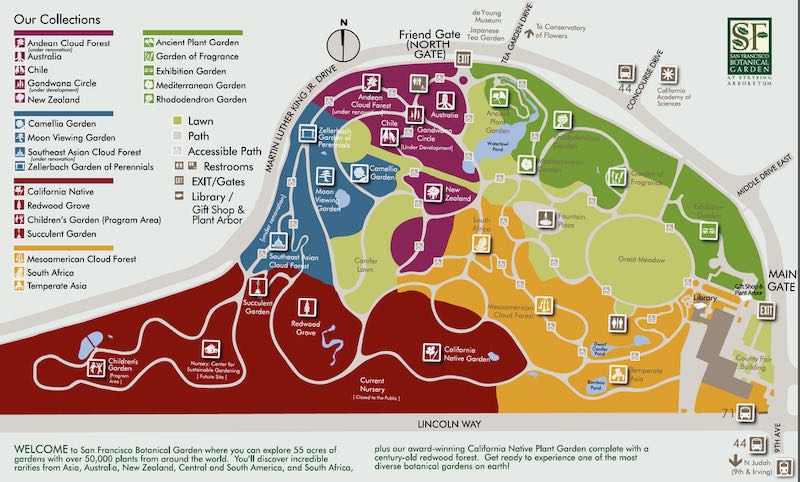
What to see in the Botanical Gardens
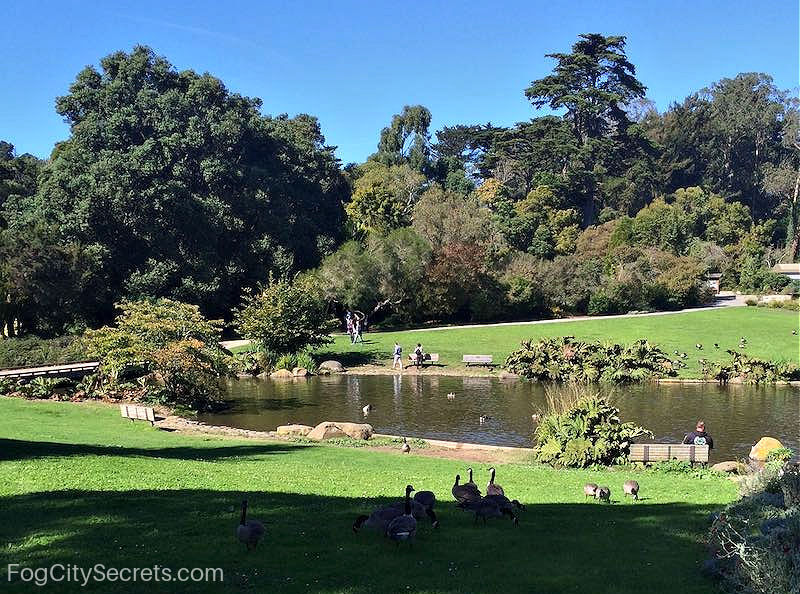 The Waterfowl Pond
The Waterfowl PondTravel Around the World
The botanical gardens are organized by geographical region.
Areas of the world that have Mediterranean-ish climates, or cool foggy climates, crop up on many continents, and are represented here by the following:
- Mesoamerican Cloud Forest
- Southeast Asian Cloud Forest
- Andean Cloud Forest
- Australia and New Zealand
- South Africa
- Temperate Asia
- The Mediterranean
- California
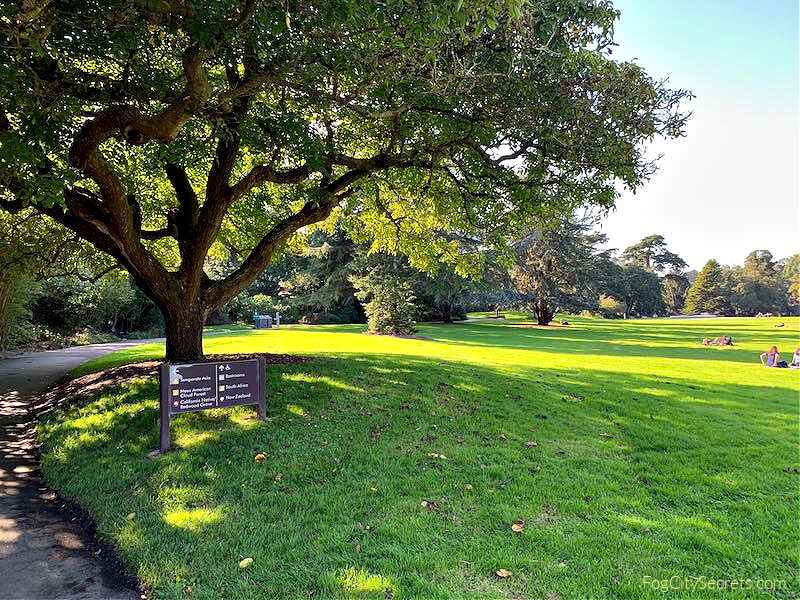 Entering the area of international plants
Entering the area of international plantsMore cool areas to visit. Jump to...
- Moon Viewing Garden
- Fragrance Garden
- Waterfall Garden
- Rhododendron and Camellia Gardens
- Ancient Plant Garden
- Succulent Garden
- Redwood Grove
Highlights of the Garden
In addition to checking out the huge variety of trees and plants, and finding the areas that have flowers in bloom, there are a few areas that are always fun to visit:
The Moon Viewing Garden
This is a mysterious spot with a wooden platform suspended over a pond, surrounded by gnarled tree trunks.
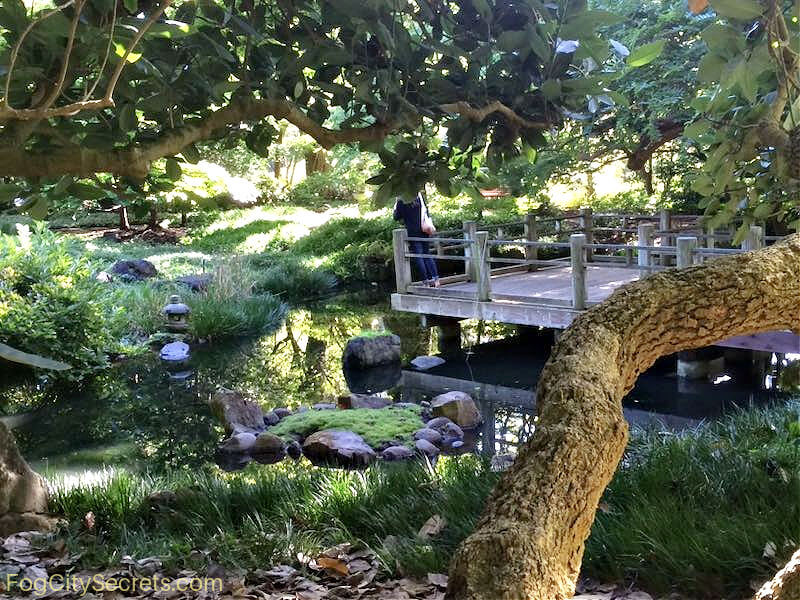 Moon Viewing Garden
Moon Viewing GardenThis garden was inspired by the Japanese custom of tsukimi, or viewing the moon.
During the warm months of August and September, friends and family gather in a garden after dark to eat, hear music, perform tea ceremonies, and recite poems to the moon. Charming!
The Moon Viewing Garden is also available for weddings.
The Waterfall Garden
A waterfall cascades over stones to join the pool at the Moon Viewing Garden.
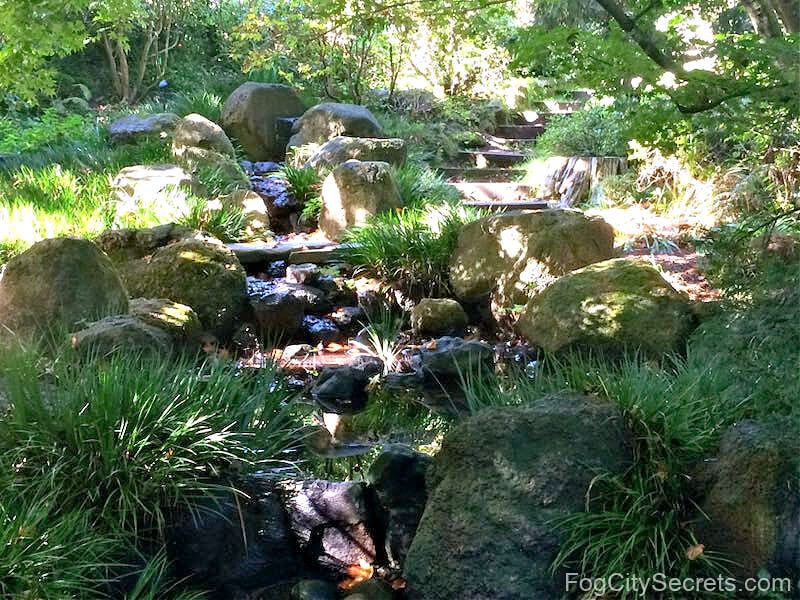 In the Waterfall Garden
In the Waterfall GardenThe Succulent Garden
Explore a large collection of succulents in all sizes.
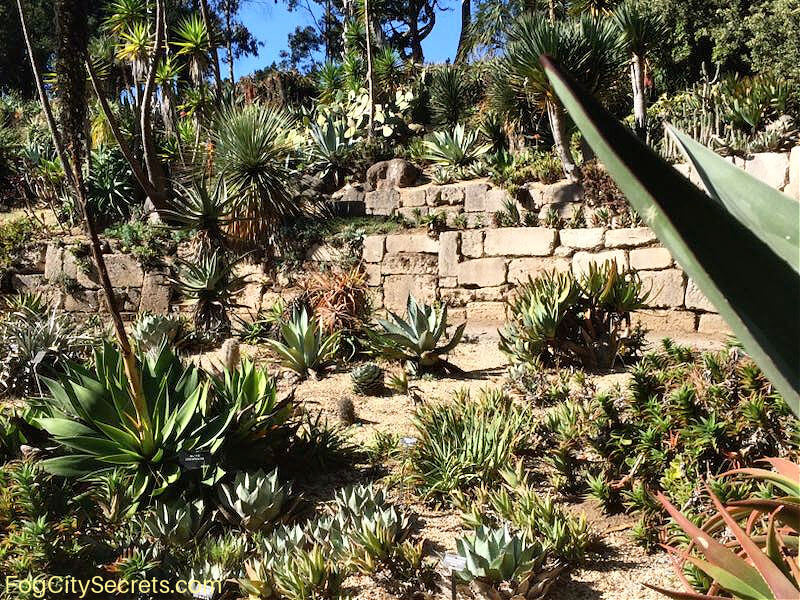
The Redwood Grove
Visit a peaceful and shady grove of redwoods that have been growing here since around 1900.
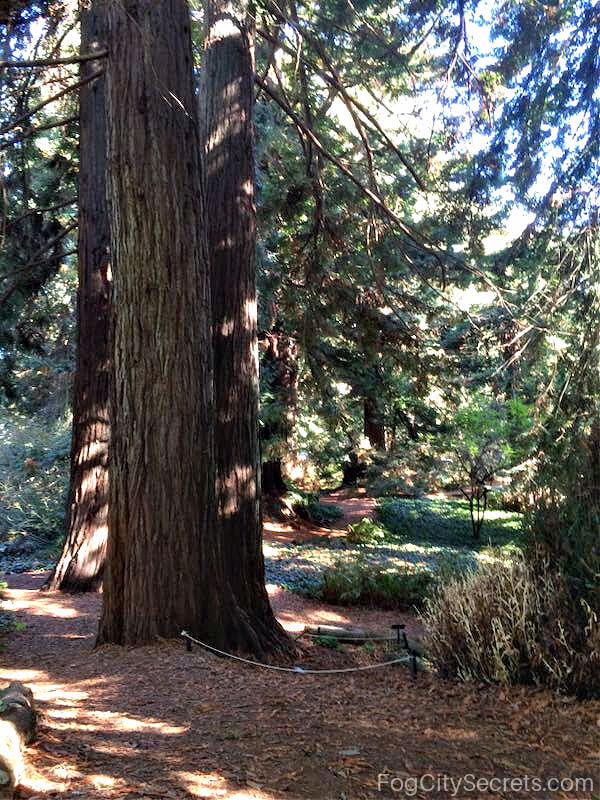
The Fragrance Garden
Sniff your way around the collection. Lavender, Salvia, Pelargoniums, and more. You are actually invited to touch the plants here!
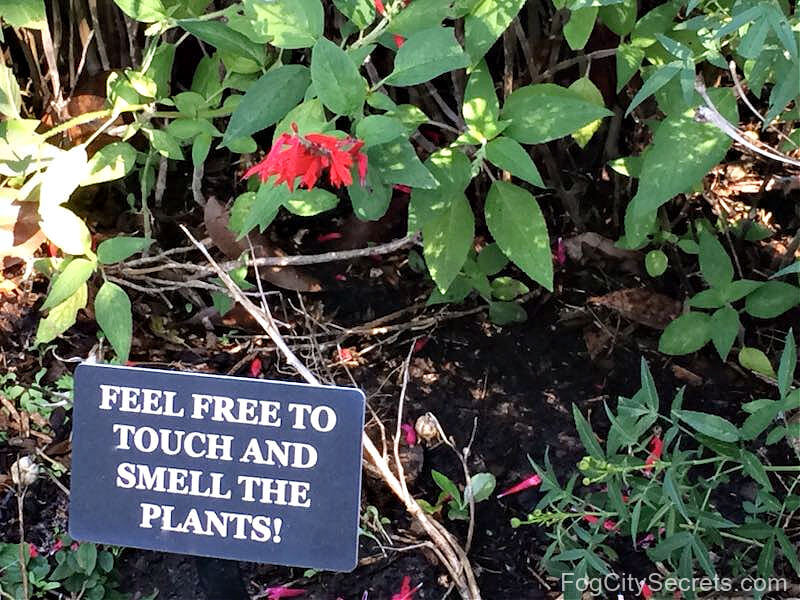
The Ancient Plants Garden
Start in the Early Devonian period, 416 million years ago, and work your way to the plants of the Eocene epoch, 56 million years ago.
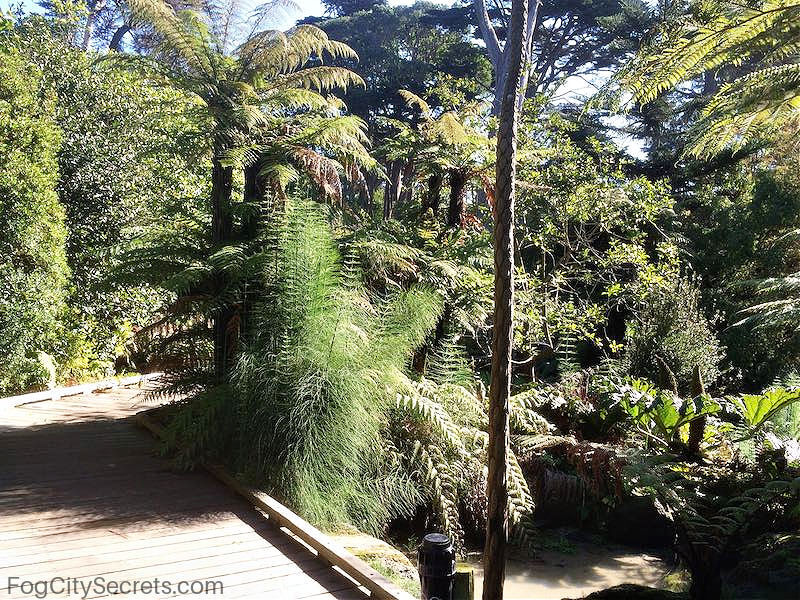 Entering the Past, Eons Ago
Entering the Past, Eons AgoOne of the things that I like to do is to explore the little paths and stairways leading off the main paths.
It feels rather magical to come upon a waterfall or stone structure that you weren't expecting. There are lots of little offshoots that beckon!
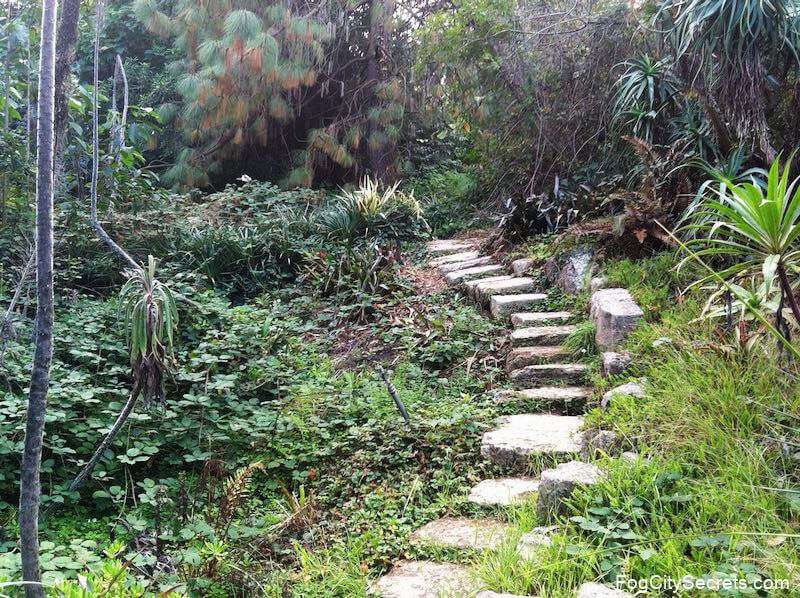
Tips for the Traveler
Bathrooms. There are only two restrooms, and the gardens are large; they are located near the two entrances.
The no-no's: no pets (except service and support animals), no camping, no smoking, no bikes, roller skates or skateboards.
Docent tours: they used to offer these free tours at the garden, but don't they appear to be happening at the moment (late 2025). Check their events calendar.
Picnics: visitors are welcome to bring food and enjoy the garden, but be sure to clean up after.
Fun fact: you can host private events at the Botanical Gardens, also at the Conservatory of Flowers and the Japanese Tea Garden. See event rentals.
Coyotes. As you may have heard, coyotes have moved into the parks in San Francisco, and Golden Gate Park is one of their favorite spots. I asked a couple of the gardeners here about them and they told me there are coyotes in the botanical garden, but they've only seen them in the early morning hours, around 6:30 a.m. They apparently get in by digging under the fences; the staff have seen their paw prints, as well as the coyotes themselves, one or two at a time.
The experts say they don't represent a danger to people, but don't approach them, in the unlikely event that you see one. That is generally true, but in June of 2024, a coyote ran out of the bushes and bit a little girl attending a summer camp here at the Botanical Gardens. She wasn't seriously injured, but it was a scary reminder that wild animals are present in the park. In 2021 there were a couple of other incidents where coyotes threatened young children in the same gardens, but were chased off by adults. See article on coyote attack for more details.
Seasonal Highlights
At any particular time, some things are blooming and others aren't. Fortunately, because of the variety, there is usually something blooming at any time of year. Here is a general guide for seasonal hotspots, either flowers, or interesting color:
Spring (April-May): California Native Garden, Rhododendron Garden, South African Garden.
Summer (June-September): Zellerbach Garden perennials, Garden of Fragrance, Redwood Grove.
Fall (October-December): Mesoamerican Cloud Forest, Andean Cloud Forest, Moon Viewing Garden.
Winter (January-March): Magnolias, Camellia and Rhododendron Gardens, Succulent and South African Gardens.
Of course, spring is the best time to see the flowers here.
Special Events in the Gardens
There are usually a number of special events every year.
- Flower Piano. a series of concerts on 12 pianos arranged throughout the gardens. Very charming! Annual event in September, in its 10th year. See Flower Piano.
- Lightscape. A mile long display of lights in the gardens (in 2025).
They also have a nice bookstore and a plant store.
Hours and Fees
Fees
Entrance fees: adults $17.25, 12-17 years and 65+ $9.25, 5-11 years $5.25. Families (including 2 adults and their kids $33.25)
Always free for: San Francisco residents (with ID), US military/veterans, and gardens members.
Free days for everyone: second Tuesday of each month, Thanksgiving, Christmas and New Years Day.
Always free entry from 7:30 to 9:00 a.m.
Tip: it's cheaper at the gate. Online booking adds $2.25 per ticket.
Hours
Opens at 7:30 a.m. Closing is seasonal: closes one hour after last entry.
Spring and Summer (second Sunday in March through September): last entry at 6 p.m.
Fall and Winter (first Sunday in November through January):last entry at 4 p.m.
October: last entry at 5:00 p.m.
Getting There and Parking
The Main Entrance to the Arboretum is on Martin Luther King Drive, just inside Golden Gate Park at 9th Avenue. The North Entrance is also on Martin Luther King Drive, a little farther into the park.
The best parking opportunities are on Martin Luther King Drive between the North Entrance and Stow Lake (see map).
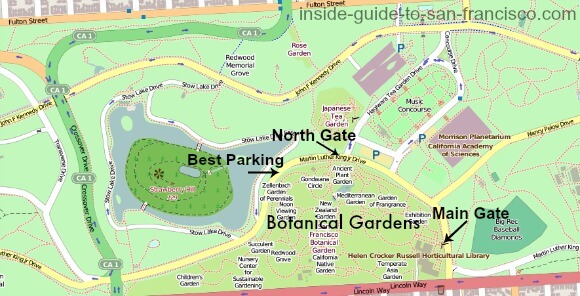
Taking Public Transportation
It's easy to get there on the street car. The N-Judah stops on 9th Avenue and Irving Street, a block from the park entrance; you can catch it downtown along Market Street (underground- it's a subway downtown).
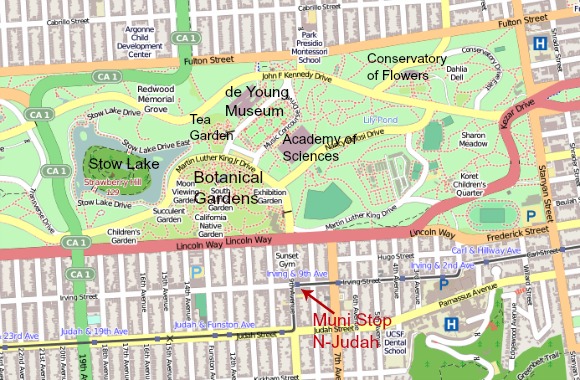 Muni to Golden Gate Park, N-Judah Stop
Muni to Golden Gate Park, N-Judah StopFind out all the things to do and see in Golden Gate Park: museums, lakes, windmills, bike rentals, and more.
More flowers?
Visit the Conservatory of Flowers not far away.
Golden Gate Park has lots of other gardens, as well. Explore the Rose Garden, Shakespeare Garden, Rhododendron Dell and more at Gardens in Golden Gate Park.
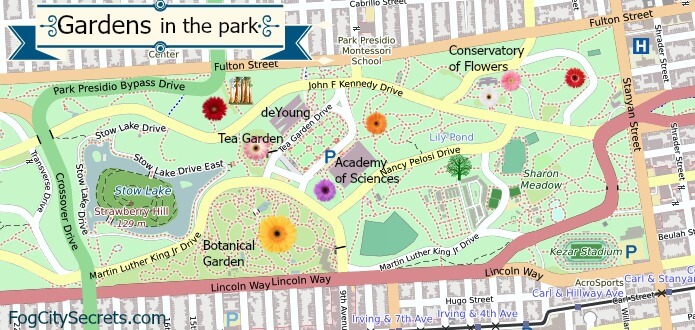
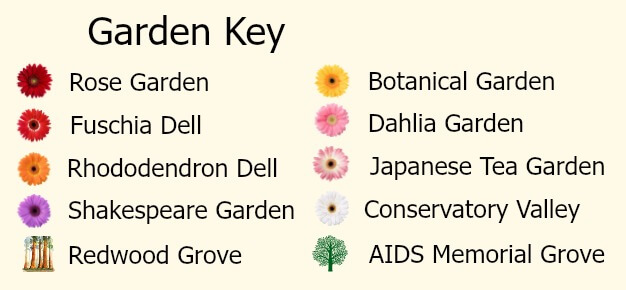
Nearby attractions...
Share this page:
